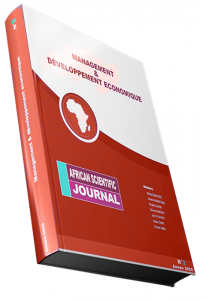Vue panoramique du modèle comptable marocain à la lumière des normes comptables internationales
DOI:
https://doi.org/10.5281/zenodo.15748134Abstract
Résumé
La comptabilité est une discipline régie par des normes, cela signifie qu’il n’est pas possible de la tenir de manière arbitraire. Par ailleurs, ces normes ne s’adressent pas uniquement à l’entreprise elle-même : de nombreux destinataires externes s’appuient également sur l’information comptable. C’est pourquoi elle doit être élaborée selon des règles précises, compréhensibles tant par ceux qui la préparent que par ceux qui l’utilisent.
Notre article ci-présent repose sur une approche méthodologique qualitative et a comme objectif principal la description et l’explication du fondement de la comptabilité marocaine et celle internationale en se basant sur une étude et analyse suffisamment pointues du CGNC et des normes IAS/IFRS.
Cependant, d’innombrables éléments essentiels divergent entre les deux référentiels marocain et international notamment au niveau de la présentation des états financiers, et des objectifs fondamentaux de la comptabilité. En effet, les normes IAS/IFRS prônent la prééminence de l'économique sur le juridique alors que le CGNC privilégie la vision juridique et fiscale de la comptabilité.
Mots clés : Comptabilité, normes comptables, CGNC, IAS, IFRS
Abstract
Accounting is a discipline governed by standards, which means it cannot be practiced arbitrarily. Moreover, these standards are not intended solely for the company itself : many external stakeholders also rely on accounting information. This is why it must be prepared according to precise rules that are understandable both to those who produce it and to those who use it.
The present article adopts a qualitative methodological approach and aims primarily to describe and explain the foundations of both Moroccan and international accounting systems, based on a thorough study and analysis of the CGNC and the IAS/IFRS standards.
However, numerous key elements differ between the Moroccan and international frameworks, particularly in terms of the presentation of financial statements and the fundamental objectives of accounting. Indeed, IAS/IFRS standards emphasize the primacy of economic substance over legal form, whereas the CGNC favors a legal and tax-oriented view of accounting.
Keywords : Accounting, accounting standards, CGNC, IAS, IFRS
Downloads
Published
How to Cite
Issue
Section
License
Copyright (c) 2025 African Scientific Journal

This work is licensed under a Creative Commons Attribution-NonCommercial-NoDerivatives 4.0 International License.





















